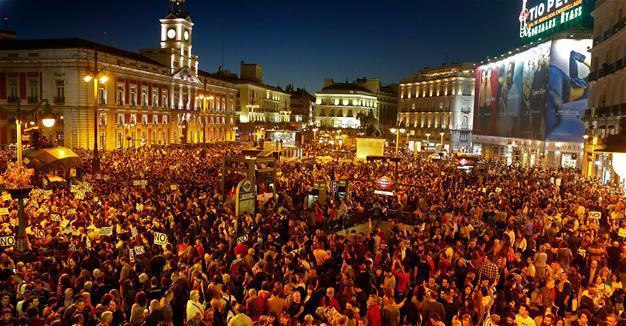Spain ends 10-month political crisis
MADRID

AP Photo
Spain ended 10 months of political gridlock on Oct. 29 when lawmakers agreed to grant conservative leader Mariano Rajoy a second term as prime minister.
Prime Minister Rajoy won a parliamentary confidence vote, pledging to plough on with his economic policies, despite the opposition blaming austerity in his first term for deepening inequalities.
“Do not expect me to... damage economic recovery and job creation,” the 61-year-old was quoted by AFP as telling lawmakers in a pre-vote parliamentary session, referring to Spain’s return to growth under his watch.
Rajoy only won the vote thanks to the abstention of most lawmakers from the Socialist party, which opted to let their arch-rival govern rather than go to third elections in poll-weary Spain.
170 lawmakers voted for Rajoy, 111 against and 68 Socialists abstained.
After two inconclusive elections and fruitless attempts at coalition-building between bickering parties, Rajoy will now form the first fully-functioning government since December, albeit with the weakest mandate in Spain’s modern history.
Without a majority in Spain’s fragmented parliament, Rajoy’s administration will have to negotiate pacts with opponents if it wants to see out its four-year term and pass laws, starting with a new budget plan for next year.
The Socialists’ decision to abstain drew stinging criticism from its rivals including far-left Podemos, and divided the party so seriously that Socialist chief Pedro Sanchez was ousted earlier this month.
Hours before the vote, Sanchez himself gave a tearful statement to the media, announcing he was quitting as a lawmaker so he would not have to abstain and allow Rajoy to govern.
Near parliament, several thousand protesters took to the streets amid a heavy police presence, unhappy about corruption and sweeping spending cuts during Rajoy’s first term, shouting: “They don’t represent us.”
“It’s going to be the same government, or similar, [as in] the past four years, which was disastrous for Spain,” said Carmen Lopez, a 65-year-old retired computer technician.
In parliament itself, party leaders strongly criticized Rajoy and one another - just as they have done for the past 10 months as the country went through two inconclusive elections.
This unstable period saw Spain go from jubilation after polls last December ended the two-party hold on power as millions voted for two upstart parties - to disillusion following polls in June that returned inconclusive results once again.
Rajoy’s Popular Party (PP) won both elections but without enough parliamentary seats to govern alone. As no political grouping was able to agree on a viable coalition, Spain looked set for more elections.
That changed last weekend when the Socialists opted to abstain in the Oct. 29 confidence vote after weeks of in-fighting that saw Sanchez ousted.
Rajoy’s nomination will be formalized by royal decree of King Felipe VI.
